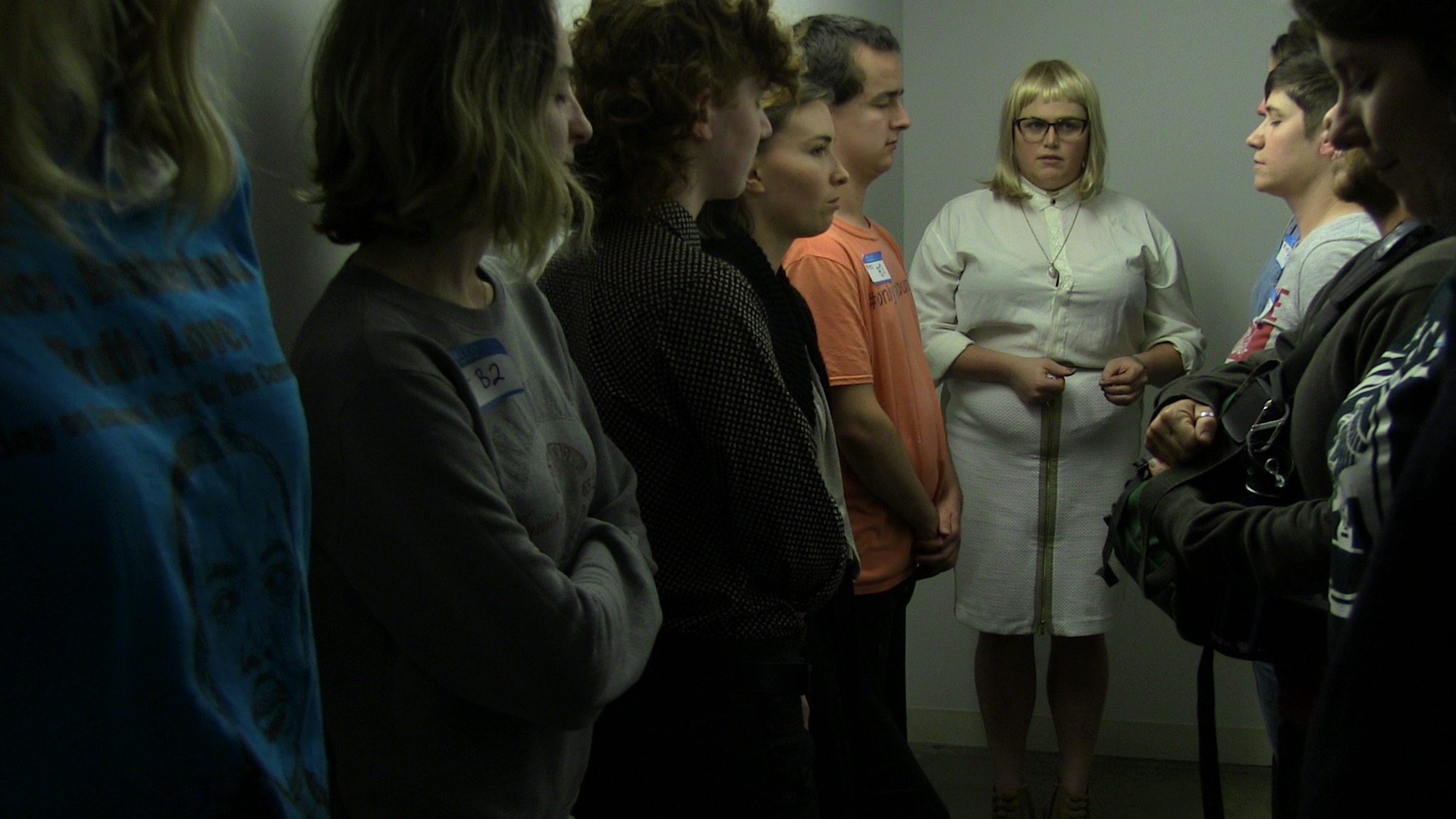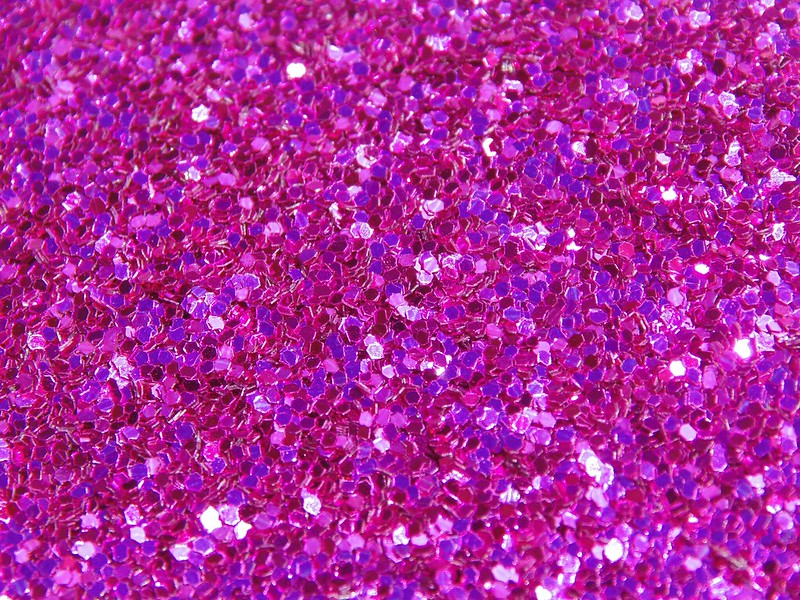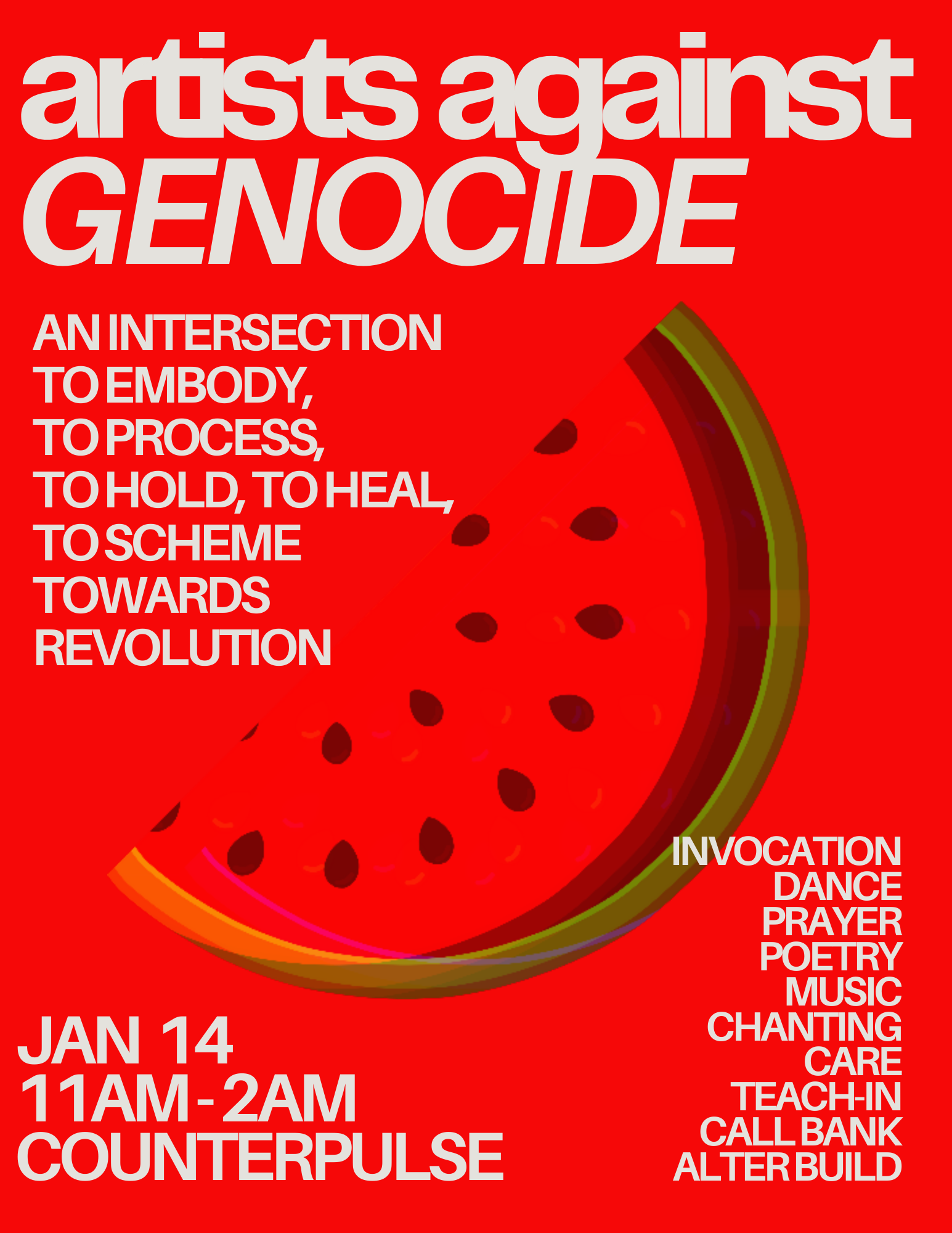Where does art fit in the landscape of social justice? Through peering into social constructs, can art instigate direct action? Where is the line drawn between performance and audience, and is the most transformative art those without a clear division? These questions I pondered prior to Annie Danger’s production, The White Stuff, immersing me into the experience weeks before it began.
I theorized with friends, their grimacing faces inquiring “how can you promote social justice by separating races? Isn’t that, like, segregation?” The noise surrounding the anti-racist boot camp bore on, as mixed-raced individuals shared their confusion on Facebook. In the artist’s own words, The White Stuff intended to be “a meaningful, uncomfortable, generative mirror for whites to go deeper into what it means to be an accomplice to racial justice.”
And in came The Whites – eager to enter the militarized path toward betterment, eyes wide with anticipation of the faux Boot Camp. At the intake table, some panicked before throwing their belongings in white garbage bags. They were implored to pick and choose between racial atrocities, they were challenged to pronounce “Nicaragua,” hands still oily from the mayonnaise challenge.
Meanwhile, brown comrades were given massages and cocktails in the Very Important Black Indigenous People of Color (or VIBIPOC) lounge upstairs. The DJ’s records drowned out the sounds of Major Sharon LeBeige berating her white soldiers below the mezzanine. Her speech navigated the space between performance and reality with militant realism. As such whites were implored whites to examine their histories, their social justice collaborations, their contested sense of self righteousness for being an ally.
As a CounterPulse staff member, I wanted to be corralled through the full artistic experience, to note the technical complexities and witness the maturation of a finalized product.
But I’m not white.
Should I lounge languidly in the VIBIPOC, chill in the mezzanine swinging cookies on a fishing line above LeBeige’s indoctrinated soldiers?
Let’s rewind a bit. I’m a Persian Jew, innately welcoming conflict into my existence. I would not be fully welcomed in Iran for my Jewish heritage; Israel has discriminated against me for looking Muslim. In the United States in which I was born, there is some privilege in my skin. The U.S. is a predominantly Zionist country heralding Jews as The Righteous People and typecasting Muslims as the nation’s biggest threat. Terrorists. This privilege lives with me like an ambulance devoid of sirens.
In the streets, my caramel skin saves me police harassment, prosecution, or worse. I’m that light brown privilege who walked out the sun just early enough.
Privilege is not static. It’s an intricate matrix of social energies fluxing through our everyday lives, power structures, our political system. Naturalized in regular encounters, privilege becomes invisible when it benefits us and most perceptible by those who lack it. On the opposite side of privilege, oppression bares its familiar and ugly teeth and grips the lives of too many of us. Oppression is the reflection of privilege from a mirror that constantly breaks and rebuilds itself.
Privilege is the Hanukkah lights that illuminate my father’s coffee shop as a white flag, a crucible uprooting our skin from Middle Eastern persecution. Oppression is the “random” airport screenings, the haircuts that “look too Persian.” Oppression is the burnt Mosque and privilege is my lack of scorching. The two rarely equate.
So the question remains: Do I enter the boot camp or enjoy a massage?
The rise of national white supremacy discourse led me upstairs. While my white friends’ hands were smothered in mayonnaise before struggling with immigration forms, my hands were massaged. While soldiers danced to the tune of racist street encounters, I danced to Hip Hop. And as they snacked on stale pastries in the decompression room, exploring their whiteness in workshops, I enjoyed fresh guacamole and explored my connection with other people of color.
Would I have benefited from the white boot camp? Definitely. Though the production was geared toward the nefarious baggage of white supremacy, privilege manifests itself in other mysterious ways and I’m learning more everyday – about my own, and about the white supremacy that eclipses it.
Thank you to Annie Danger and her cast of 20+ characters and volunteers for orchestrating a challenging and important production. I hope all the participants took something consequential away from the event, whether it’s striving to combat racial injustices with organizations like TGI Justice Project (TGIJP), POOR Magazine, Anti Police-Terror Project, or having the space to process and heal.
Justin Ebrahemi is the Outreach Manager at CounterPulse. This personal reflection does not necessarily represent the views of the organization. All photos by Sarolta Jane Cump.
Share This!
More Good Stuff
Dearest Community Members, We’re looking forward to coming together in an evening of community connection tomorrow at INNERSPACE. The value of this opportunity to take
CounterPulse TenderArts Program announces The Glitter Show, paying homage to the role glitter has played as an important visual element in the history of gay
Artists Against Genocide 1/14/24 at 11 am to 2 am on 11/15/24 A gathering of the Bay Area’s performing artists and our communities, hosted at









